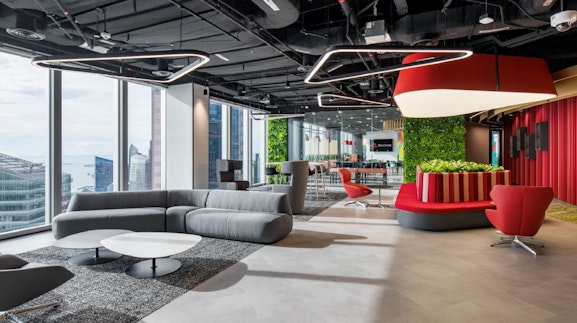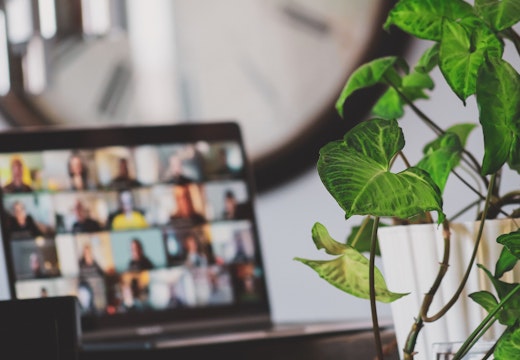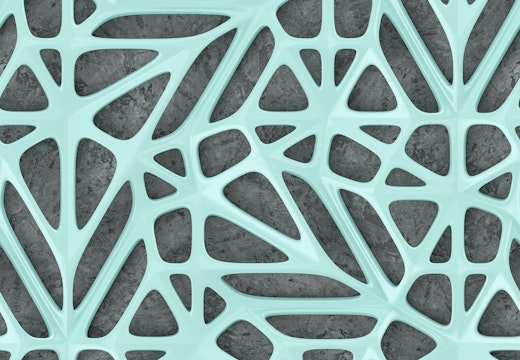Health and work: can we design a more interconnected approach?
Workplace wellbeing has been moving up the agenda since the pandemic, but are we addressing the issue in sufficient depth? A new article series with Adrianse explores a more holistic framework for health and work
Health and wellness in the workplace have never been higher on the business agenda. This is a direct impact of the global pandemic which gave every employee a heightened sense of their own personal vulnerability and encouraged every company to take more responsibility for the welfare of their workforce.
But while this fast-growing interest in wellbeing is welcome, not everyone is convinced that current approaches to health and work are being developed with sufficient depth.
As Chinmayee Ananth, a director of global design firm Adrianse, explains: ‘The way we think about health has changed since Covid-19. The drive to design wellness-compliant workspace is now very strong. But while such initiatives are expanding, too many are just transactional and programmatic. We need to think more deeply and conceptually about how healthy work can be defined from multiple perspectives.’
New insights and connections
This article is the first in a series considering the multi-faceted relationship between health and work. It is a collaboration between Adrianse and WORKTECH Academy which seeks to explore new insights and connections.
The series aims to bring to light innovative and essential ways of reimagining how we think about the relationship between work and health, recognising that approaches on the subject can sometimes amount to box-ticking exercises or superficial adjustments to poorly designed spaces.
Instead, a more integrated approach to health and work is proposed where workspaces of all kinds can actively function to enhance healthy living. To do this, the various systems that comprise the workplace – technological, natural, material, cultural, human and spatial – need to be aligned within a holistic framework.

What health really means
Adrianse has 11 international studios from Singapore and Bangalore to New York and Milan. The firm brings a wealth of experience in designing and building workspaces, healthcare environments and data centres. Learning, curiosity and cultural engagement are touchstones of its practice. That means not simply translating ideas from healthcare environments into workspace but thinking more deeply about what health means in a fast-changing working world.
This is especially important given Adrianse’s roots in the Asia Pacific region, notably India and Singapore. The company’s leadership team explains: ‘Before the pandemic, there was a tendency to push employees to overwork. There was no balance. Cynical firms said that people should just be glad of a job. Now, expectations are shifting, influenced by the multinational employers who are opening offices in the region.’
Chinmayee Ananth adds: ‘Today, we’re designing healthier and happier spaces. We know that happier working teams have least resistance to change. We’re giving people choice so they can be masters of their own decisions’.
In introducing the topic of work and health, this first article explores the themes of this series at three different scales: the city, workspace and home. As Adrianse director Jayanth Gopal observes: ‘Working well is a subset of living well. So, we need to examine every aspect from the level of the city to the detail of the desk.’
Three scales of change
City: Thinking about health and work at an urban scale allows for reflection about the ways in which the design of cities affects our health and our working lives. Questions around transport and mobility, air quality and access to green space are fundamental to both discussions around urban wellbeing and workplace health.
Goals to support employees to commute by bike or public transport cannot be unpicked from thinking about the city-wide system; attempts to increase air quality within workspaces will be undone the second your employee opens a window if it is not tackled on a city-wide basis. From this perspective, it must be acknowledged the workplace is one element within a wider connected network. The city also provides inspiration for workspace planning, as Adrianse’s new Singapore HQ for global IT firm RedHat illustrates with its ‘urban park’ zooming of interior space, external views and public walks.

Image: RedHat Singapore. Courtesy of Adrianse
Workplace: When we think of a ‘workplace’ we often think of an office building, but in the world of hybrid working the concept of workplace has expanded and begun to include spaces that were previously overlooked such as the café, coworking venue or transport hub. It is also recognised that healthcare settings are workplaces too, after many years during which patient care was prioritised over worker wellbeing, leading to staff burnout and stress.
Reimagining the hospital as a space that supports the health of all of its occupants is being mirrored by a deeper approach to workplace wellbeing. Jayanth Gopal comments: ‘The workplace is now asking questions that healthcare has been asking for ages – how do we de-centralise and allow access in the local community or virtually?
Home: At the domestic scale, the interconnected nature of work and health narrows to the point of individual experience. For some, there are clear health benefits arising from better work-life balance or greater personal autonomy in the home environment. For others, it can be stressful and unsafe, with remote workers feeling cut off from culture, interaction and colleagues. Employees lose a sense of belonging, which impacts their mental health.
New challenges to wellbeing
What ties health and work together across a continuum of scales is a series of systems, which must be designed carefully in relation to each other, as this article series explains.
In our next article, we will look at how the technology systems which enable hybrid work are influencing design of workspace. Hybrid demands a completely new approach to workplace wellbeing. Adrianse’s work for Bosch in Pune, India, illustrates what can be achieved by transforming a traditional ‘factory-style’ office into a community hub for innovation, celebration and exchange, based around a hybrid working model. As Chinmayee Ananth explains: ‘Hybrid equals choice. It’s already easier on the mind in terms of health. You can escape the chaos of home when you need to work in the office. But when you need to work from home, you can do that too.’
In article three, we will look at natural systems, analysing the effects of biophilic design on health, but also going beyond biophilia to examine how biomimicry and biomorphism can play a growing role in wellbeing. A deeper approach creates an environment that reflects more deeply the natural environment and replicates natural systems. Adrianse’s new design of the Pfizer’s Mumbai office reflects this philosophy. Gopal explains: ‘Biophilia is an over-used word and is generally applied too narrowly. More broadly it means “Love of life” and should have application in that context.’
‘Health and happiness are deeply linked to inclusion, to feeling welcome and valued in your environment’
In article four, we will look at cultural systems that support employee engagement – health and happiness are deeply linked to inclusion, to feeling welcome and valued in your environment. This is a fundamental but underrated part of employee wellbeing, and designing for a more diverse workforce has multiple facets.
In our final article, we will look at spatial systems, in particular the art of placemaking, a term derived from the scale of the urban plan but of utmost personal significance to the individual. As Chinmayee Ananth says: ‘It’s all about putting people ahead of infrastructure. It brings physical, mental and spiritual health all together.’
Now has never been a more important time to think more deeply and more holistically about what makes work healthier. As Adrianse director Jayanth Gopal explains: ‘As a firm, we care deeply about the various ways in which this can happen.’








